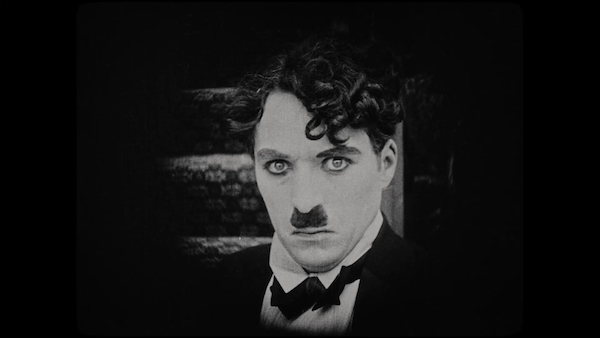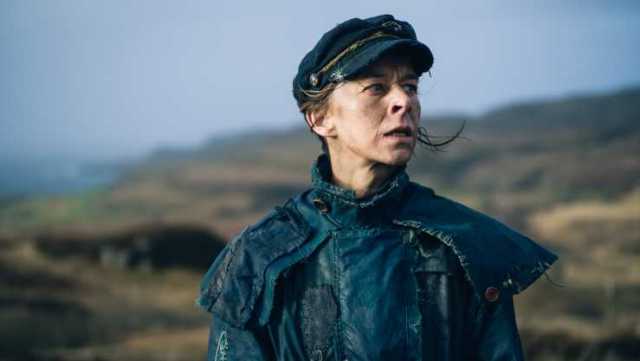Film Reviews: The English Dispatch — London Film Festival (Part 1)
By Peg Aloi
With my customary determination and pluck, I’ve been able to get access to plenty of films at the London Film Fest that cover a broad spectrum of genres, budgets, and nations.
Well, despite my middling attempt at humor, no, sorry to say that I did not attend the gala screening of The French Dispatch this week at the London Film Festival. I’m mostly covering the festival remotely while in the UK, which means I don’t have access to the “big ticket” films like Wes Anderson’s latest, or the new films from Jane Campion (Power of the Dog), Kenneth Branagh (Belfast), or Edgar Wright (Last Night in Soho). The online access for press delegates is also quite limited, time-wise. What’s more, most press screenings take place in the early morning. Still, with my customary determination and pluck, I’ve been able to get access to plenty of films that cover a broad spectrum of genres, budgets, and nations. I’ll be reviewing some of them for you in my festival coverage, and later on when some of them get their releases in the US.

A scene from All is Vanity.
Reviewed in this dispatch: All Is Vanity, The Real Charlie Chaplin, Luzzu, and Shepherd. (Coming in Part Two: Bergman Island, Petrov’s Flu, Wild Indian, and Titane. To be reviewed separately: Mass)
My first viewing didn’t bode well: All Is Vanity is a conceptual film that feels like an overlong short: strong in concept but weak in execution. An arrogant fashion photographer and his new intern meet up with a fashion model for an industry shoot that seems to end in violence… or does it? The unexpected breaking of the fourth wall, wherein filmmaker Marcos Mereles enters the story to try and fix the flailing plot, does little to justify the film’s lack of a coherent or engaging story line. As the title suggests, the film’s a bit in love with its own cleverness, and not written or designed (despite being about fashion) well enough to transcend its lack of a center.

Charlie Chaplin in The Real Charlie Chaplin. Photo: Courtesy of SHOWTIME
The Real Charlie Chaplin is an engaging documentary by Peter Middleton and James Spinney that excavates the origins of the silent film legend’s career and enormous cultural impact. It begins with a mention of “Chaplin Mania,” an odd phenomenon that occurred soon after Chaplin’s career began to soar, which convinced ordinary people they were seeing Charlie Chaplin, well, everywhere. The ebullient voice-over narrative, helped along with archival imagery and silent film style intertitles, then delves into his difficult childhood. Chaplin ended up a poor orphan in a workhouse in London after his mother, an actress struggling to make ends meet after his father ran off with a chorus girl, was put in an asylum. His friends remember him as always hungry and always trying to make them laugh. He eventually started working with Fred Karno, the impresario, and learned the skills of physical comedy from the ground up, along with mastering the cello and ancient Greek. After sailing on tour to America, he was discovered by Mack Sennett, who cast Chaplin as a replacement for Sterling Ford, who had unexpectedly quit his lead role in the Keystone Cops films. It didn’t take long before Chaplin was writing, producing, and directing his own films, even composing scores and doing makeup. The filmmaker demanded total artistic control and often gave intricate instructions to his actors. A treasure trove of archival footage, with some never-before-heard audio, accompanies the well-written narration. Chaplin’s tramp character is deconstructed, from its human influences (homeless men in London and American hobos) to the inspirations for the figure’s costume elements (Fatty Arbuckle’s trousers, among others). The film is painstakingly researched and detailed, and film history buffs and Chaplin fans will find it entertaining and fascinating.
The title of Luzzu refers to the colorful painted wooden fishing boats traditionally used by Maltese fisherman. This film follows a young fisherman, played by nonprofessional actor Jesmark Scicluna, who gives an impressively natural and compelling performance. Jes is a hard-working fisherman, struggling to provide for his family amid changing norms. The EU regulations limit what he can catch and sell, and large commercial trawlers are crowding out the independent fishermen. Once Jes discovers there is corruption in his industry, he quickly scrambles to make the most of the ins and outs of the black market that overshadows what was once a satisfying and lucrative profession. He realizes that he can’t sustain this strategy, but he works diligently on repairing his fishing boat, driven by the belief that his hard work and skill will somehow be rewarded in the end. This is an intimate glimpse at a way of life that has lasted for generations but is slowly fading away because of financial and political pressures. Luzzu is a moving portrait of a dying livelihood (how many countries once had a lively fishing industry that defined their culture?) and a paean to the struggle of an individual to survive.

A scene from Shepherd with Kate Dickie.
Russell Owen’s Shepherd is a gorgeously photographed film with tinges of folk horror. Tom Hughes, an English actor known for playing brooding, complex characters, is cast as Eric Black, a young man grieving after the mysterious death of his wife Rachel (Gaia Weiss). Depressed and lonely, Eric nevertheless decides to take a job as a shepherd on a remote, uninhabited Scottish island. On his way there with his dog, he stops to visit his mother (a moving performance by Greta Scacchi). She berates him for grieving a woman she saw as flawed and immoral. Eric drives through enormous mountainous vistas and then takes a ferry to the island where a tiny, ill-equipped cottage awaits. The woman who operates the ferry (played by the marvelous Kate Dickie [The Witch]) is odd and a bit menacing: she seems to know more about Eric than she should. The symbolic function of a ferry crossing is obvious: the move to an unknown place that teems with intimations of death and sadness. Eric is tortured by nightmares and visions, and the island’s lonely atmosphere plays tricks on his mind as he begins to reckon with the circumstances of his wife’s death. I enjoyed the unique and stunning geographic setting of this film. Its folk horror elements (I detected influences as far afield as The Witch, The Lighthouse, and Midsommar) are integrated throughout, infusing the story with a haunting, unsettling quality.
Peg Aloi is a former film critic for the Boston Phoenix and member of the Boston Society of Film Critics. She taught film studies in Boston for over a decade. She writes on film, TV, and culture for web publications like Vice, Polygon, Bustle, Mic, Orlando Weekly, Crooked Marquee, and Bloody Disgusting. Her blog “The Witching Hour” can be found at themediawitch.com.
Tagged: All is Vanity, London Film Festival, Luzzu, Marcos Mereles, Peg Aloi, Shepard
